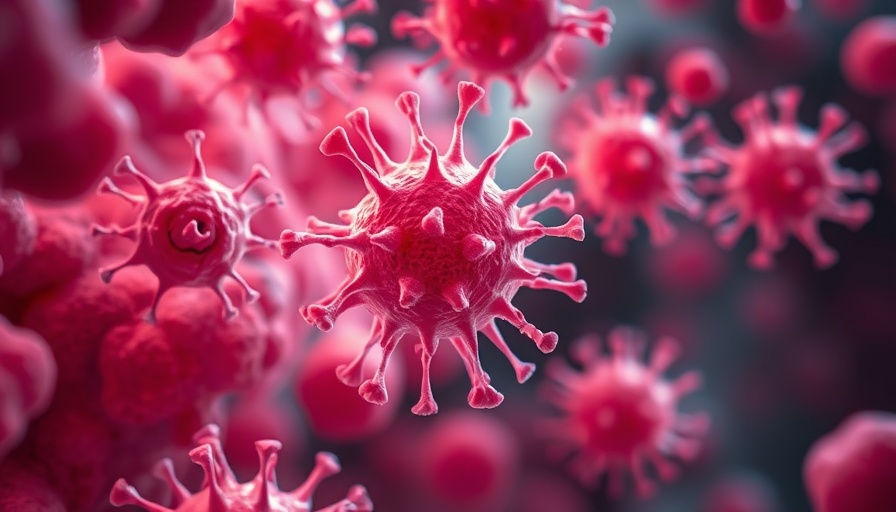
The Unseen Link: Inflammation and Prostate Cancer
Prostate cancer is often overshadowed by discussions surrounding other male health issues, yet it is a leading cause of cancer diagnosis among men. Recent findings indicate inflammation plays a critical role in driving the early stages of this disease through cellular reprogramming. Understanding this connection could be key for professionals, athletes, and fitness enthusiasts who prioritize health and prevention.
Historical Context: The Shift in Cancer Research
For years, inflammation has been recognized in various contexts as a contributor to chronic diseases, but its role in cancer specifically has gained traction more recently. Early research painted inflammation as a mere consequence of cancer, but the narrative is shifting. It’s becoming increasingly clear that inflammation is not just a bystander; it potentially reprograms cellular behavior, influencing cancer development from the earliest stages.
Why This Matters for Men Today
For men aged 35-55, being informed about the risk factors associated with prostate cancer is imperative. As professionals and fitness enthusiasts, integrating knowledge about inflammation into your health regime can offer significant preventative advantages. Factors such as poor diet, sedentary lifestyle, and stress can exacerbate inflammation, thereby increasing prostate cancer risk.
Future Predictions: Emerging Research and Prevention Strategies
The future of prostate cancer research is looking bright, with ongoing studies aiming to clarify the relationship between inflammation and cancer progression. A more profound comprehension of these mechanisms could pave the way for novel therapies and interventions. Moreover, proactive measures such as exercise, healthy nutrition, and stress management might not only mitigate inflammation but also bolster overall men's health.
Emotional Insight: The Impact of a Prostate Cancer Diagnosis
Receiving a prostate cancer diagnosis can evoke a spectrum of emotions from fear, anxiety to uncertainty. For men who actively engage in healthy living, this diagnosis can feel particularly disheartening. However, awareness and education around the factors like inflammation can empower men to take charge of their health actively and engage in beneficial lifestyle changes.
Debunking Myths: The Overlooked Role of Lifestyle
One common misconception is that prostate cancer is purely genetic and unavoidable. While genetics does play a role, inflammation—largely influenced by lifestyle—is a modifiable risk factor. Anti-inflammatory diets, regular exercise, and stress reduction techniques can dramatically reduce inflammation, positively impacting prostate health.
Practical Tips for Managing Inflammation
- Nutrient-Rich Diet: Focus on incorporating anti-inflammatory foods, such as fruits, vegetables, olive oil, and fatty fish.
- Physical Activity: Engage in regular physical activity; it's a powerful tool for reducing inflammation.
- Stress Management: Incorporate stress-reducing practices like meditation, yoga, or deep-breathing exercises into your routine.
- Regular Check-Ups: Stay proactive with your health by scheduling regular prostate screenings and discussing any concerning symptoms with a healthcare provider.
Encouragement to Take Action
As studies continue to uncover the role of inflammation in prostate cancer, it’s crucial for men to take a proactive stance on their health. Adopting a healthy lifestyle not only helps in managing inflammation but fosters a more vibrant and vigorous life.
Ultimately, understanding the inflammatory pathways linked to prostate cancer provides an opportunity for empowerment. Take charge of your health journey and embrace the choices that promote well-being!
 Add Row
Add Row  Add
Add 




Write A Comment